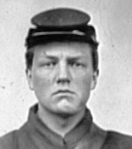16. The Confederate Homefront
Questions:
1.Was slavery
central to Confederate identity?
2. How pervasive were defeatism and demoralisation within the South, and what
part did they play in Confederate defeat?
3. How was Confederate nationalism generated?
4.
How
effective was Jefferson Davis’s
leadership?
Anne
Sarah Rubin, “A Religious Patriotism: The Culture of Confederate
Identity” from A Shattered Nation: The Rise and Fall of the
Confederacy, 1861-1868 (Chapel Hill: University of North Carolina
Press, 2005).
William Blair, “Towards a Rich Man’s
Fight” from Virginia’s Private War: Feeding Body and Soul
in the Confederacy, 1861-1865 (New York: Oxford University Press, 1998)
Benjamin
L. Carp, “Nations of American Rebels: Understanding Nationalism
in Revolutionary North America and the Civil War South,” Civil
War History 48.1 (2002)
Drew
Gilpin Faust, “Altars of Sacrifice: Confederate Women and the
Narratives of War,” Journal of American History 76 (Mar. 1990):
1200-28
George C. Rable, The Confederate Republic: A Revolt Against Politics (Chapel
Hill: University of North Carolina Press, 1994)
Paul Escott, After Secession: Jefferson Davis and the Failure of Confederate
nationalism (Baton Rouge: Louisiana State University Press, 1978)
Robert
Bonner, Colors and Blood: Flag Passions of the Confederate South (2002)
William
W. Freehling, “The Last Best Hope,” from The South vs the
South: How Anti-Confederate Southerners Shaped the Course of the Civil
War (New York: Oxford University Press, 2001)
Martin
Crawford, Ashe County’s Civil War: Community and Society in the
Appalachian South (Charlottesville: University of Virginia Press, 2001)
Primary sources
C. Vann Woodward, ed., Mary Chesnut’s Civil War (New Haven: Yale University
Press, 1981)
Robert Manson Myers, The Children of Pride (New Haven: Yale University Press,
1972)
